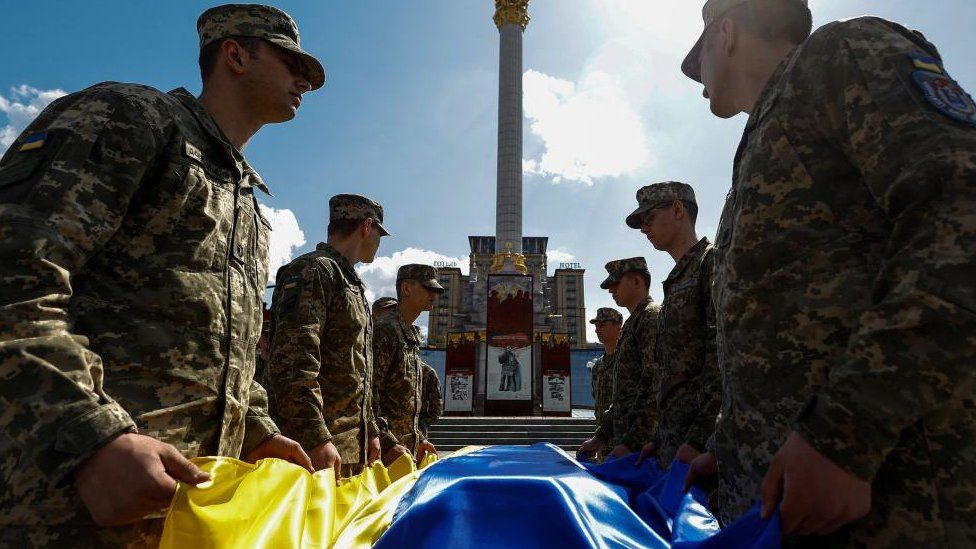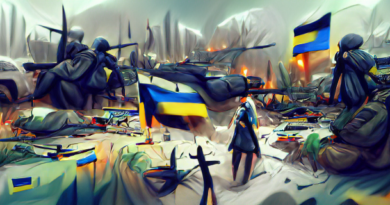Czech teacher on trial over Ukraine war misinformation
 Reuters
ReutersA Czech primary school teacher is due to face trial for spreading Russian disinformation about the war in Ukraine to her pupils.
Martina Bednarova, who until last year taught Czech at a school in Prague, told children last April there was “no war” in the Ukrainian capital Kyiv.
On the contrary, she claimed, Ukrainian soldiers were murdering the Russian-speaking inhabitants of Donbas.
A state prosecutor has filed charges against her, Czech daily Pravo reports.
Ms Bednarova is accused of the criminal offence of denying, questioning, approving or justifying genocide. She faces between six months and three years in prison if convicted.
She told her class of 13- and 14-year-old pupils in early April 2022 that she had seen webcam images from Kyiv that showed the city was peaceful, with no fighting.
When some of the children challenged her remarks, saying they had seen footage of Kyiv burning on the country’s public TV network Czech Television, she explained they should seek out alternative sources.
She falsely claimed that Czech TV belonged to a stable of media outlets tied to US billionaire philanthropist George Soros, adding that “we all know to whom he is beholden”. Mr Soros has for years been the focus of hard-right conspiracy theories because of his funding of liberal, democratic causes.
Ms Bednarova also made further unfounded claims that openly neo-Nazi Ukrainian forces were skinning and burning alive Russian-speakers, including children. She alleged Ukraine had been running a murderous campaign of terror in Donbas since 2014, a regular theme of Russian propaganda.
Her remarks were covertly recorded by one of the pupils who played it to his parents, who then approached the school. She was later dismissed for gross misconduct. She challenged her dismissal in court, but lost.
According to Pravo, Ms Bednarova denies the criminal charges against her, arguing she was merely presenting the children with facts. The 18-minute recording was part of a 45-minute discussion, and the comments were taken out of context, she argues.
Her prosecution is one of several high-profile cases, as Russia’s war against Ukraine tests the limits of freedom of expression in the Czech Republic.
Earlier this month a Czech man received a six-month suspended sentence for wearing symbols of Russia’s war to an anti-government demonstration. He was fined and banned from entering Prague for a year for wearing Russia’s notorious pro-war “Z” symbol as well as a patch of the Wagner mercenary group.
The man was sentenced for the same offence as Ms Bednarova.
The Czech government is a firm backer of Ukraine’s effort to defend itself from Russia, and the public is broadly supportive. However, some Czechs – including the new president Petr Pavel – have warned such support will inevitably wane over time.
President Pavel, former second in command at Nato, told Polish newspaper Rzeczpospolita last month that he believed Ukraine had “one shot” at a major counter-offensive.
He said it would be “extremely difficult” for the West to maintain the currently level of support – both military and moral – beyond next winter, and Kyiv’s window of opportunity was this year.


